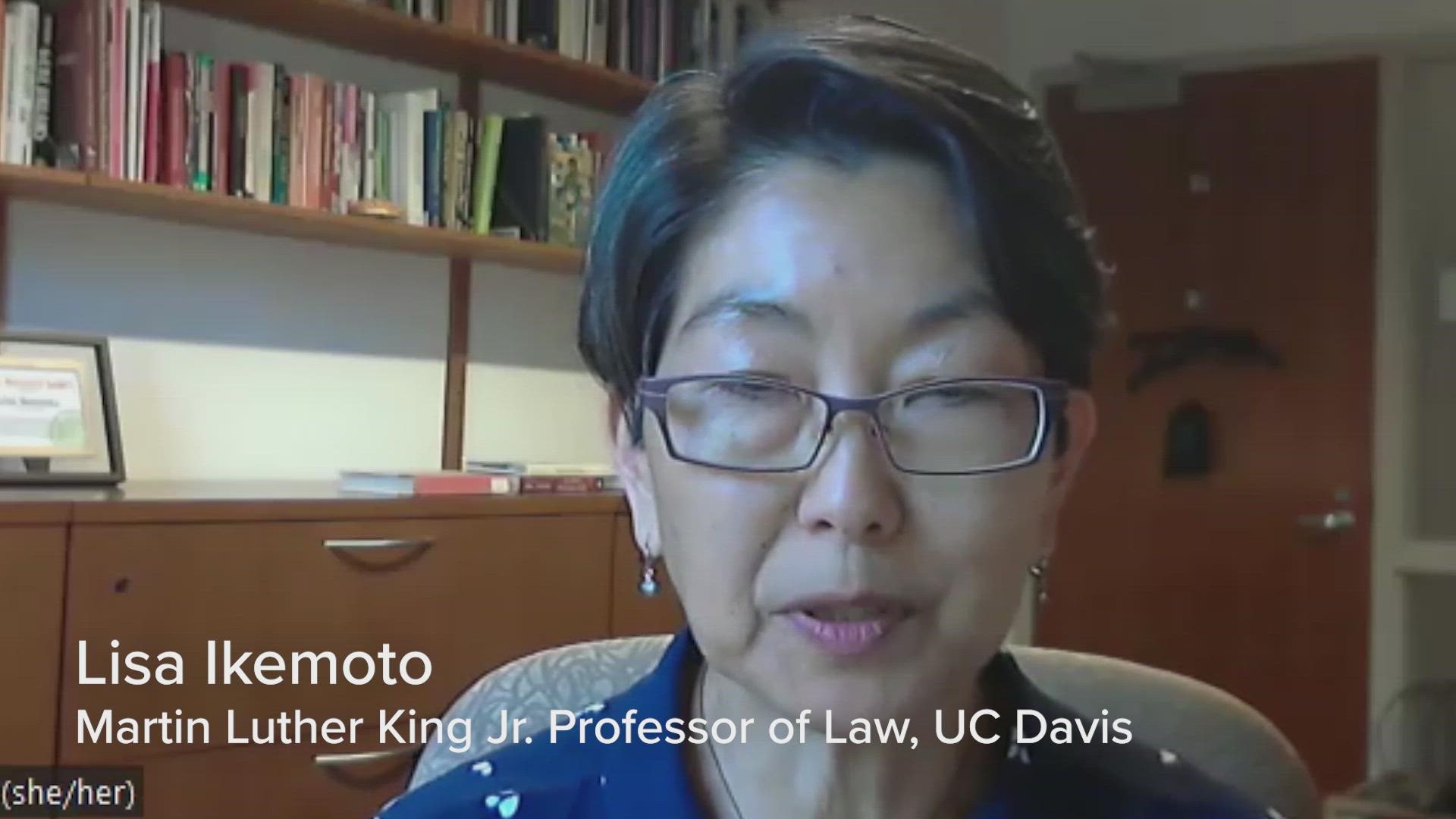CALIFORNIA, USA — Roe v. Wade is one of the biggest and most contentious Supreme Court decisions to have ever been issued. It's the topic of countless discussions, with some sides absolutely polarized on the topic of abortion.
A leak of an early draft of the Supreme Court's ruling has the potential to overturn the landmark decision. If the February opinion as written becomes the law of the land, an estimated 26 states are certain or likely to outlaw abortion immediately.
It remains one of the greatest arguments in the country, and the court is expected to rule on the case before its term ends in late June or early July.
ABC10 spoke with Lisa Ikemoto, UC Davis professor of law, to break down the most important things to know.
What's going on?
Simply speaking, the Supreme Court is poised to make a decision on abortion and whether it is protected by the Constitution.
A draft of a February Supreme Court opinion was leaked and suggests the court could be poised to overturn the landmark case that legalized abortion nationwide.
A state law from Mississippi is pushing the question as to whether there's a right to abortion in the Constitution.
"They're considering a state law passed by the Mississippi legislature that would ban abortion from 15 weeks. Fifteen weeks is well before the point of viability, and so that raises the question of whether or not there is a constitutional right to abortion or whether state legislatures would have the power to override access to abortion. And it looks like they might do that," Ikemoto said.
What exactly is Roe v. Wade?
Going back to basics, Roe v. Wade is a court ruling, but Ikemoto says it's also a law.
"Certainly when we think of laws, we think of statutes as enacted either by Congress or by state legislatures. But courts also have the power to make law. They have the authority to interpret statutes in some cases, but they also have the law to create what we call common law," Ikemoto said.
The ruling itself goes back to 1973 when the court decided abortion was a right protected under the Constitution.
A case in the 1990s, Casey v. Planned Parenthood, helped gauge how much people can restrict access to abortion.
"That's why we do have state laws that restrict access to abortion or that regulate the way that abortion can be offered and services that can be provided. But we still have a guarantee that in every state, the legislators can't foreclose abortion altogether," Ikemoto said.
What happens if Roe v. Wade is overturned?
There's no single outcome if Roe v. Wade is overturned. The leaked opinion says there's no constitutional right to an abortion, and that the matter would be left for the states to decide.
"That means in some states, the state legislatures could decide to enact bans or very severe restrictions on access to abortion. But in other states, they might step forward (and expand it)," Ikemoto said.
Why not leave it to the states and the democratic process?
Ikemoto said the draft opinion seems to indicate that the contentious issue should be decided by the states in what Justice Samuel Alito referred to as the democratic process.
"So, it's something that our elected officials should have the responsibility of addressing on a state-by-state basis," Ikemoto said, articulating Alito's argument. "And certainly we do that with many other types of laws. Most of the laws that state legislatures have the authority to do that with their basic health and safety laws."
However, she made note that there was a counterpoint to that idea and that abortion rights were different.
"It secures the ability to have the say-so over your own body, and without state interference, without government interference over that, and it also does so in a way that is highly gendered.
She added that those that see the greatest impact from those laws include people who lack travel resources, don't have full access to health and have been hit hardest by the coronavirus pandemic.
WATCH ALSO:



















